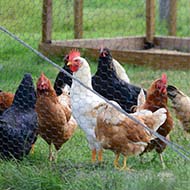
A 3km and 10km control zone has been placed around the infected premises.
All birds at a wildbird rescue centre in Worcestershire will be culled following the identification of highly pathogenic H5N1 avian influenza on Tuesday (26 October).
A 3km and 10km temporary control zone has been placed around the infected premises, which does not supply meat, poultry or eggs to the commercial food chain. An investigation is now underway to determine the most likely source of the outbreak.
“We have taken swift action to limit the spread of the disease, and any birds at risk of infection will now be humanely culled,” commented UK chief veterinary officer Christine Middlemiss.
“UK Health Security Agency has confirmed that the risk to public health is very low and the Food Standards Agency has said that bird flu poses a very low risk to food safety for UK consumers.”
Earlier this month, the UK’s four chief veterinary officers urged swift action from poultry keepers to reduce the risk of avian influenza this winter. While the UK was recently declared free from avian flu, there have now been 27 outbreaks in poultry and captive birds in the last year and more than 300 outbreaks in wild birds.
“As we move into the higher risk period over winter, bird keepers should pay extra attention to the health of their birds,” Ms Middlemiss continued.
“Anybody who suspects disease should report it to their vet or APHA immediately. The best way to tackle this disease is for poultry keepers to ensure that they have strong biosecurity measures in place.”



 The RCVS has announced a new version of its 1CPD mobile app, with enhanced features for veterinary surgeons and veterinary nurses to record their continuing professional development.
The RCVS has announced a new version of its 1CPD mobile app, with enhanced features for veterinary surgeons and veterinary nurses to record their continuing professional development.